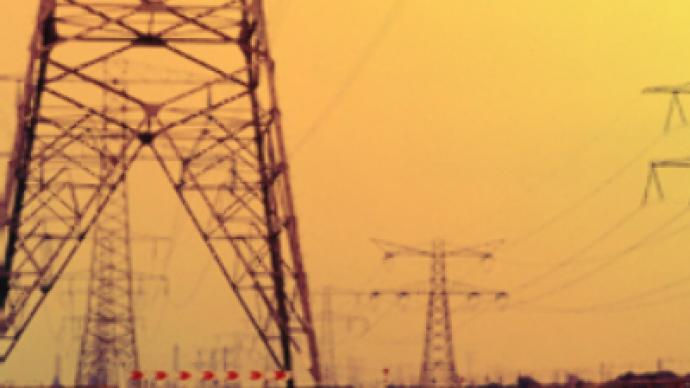Thursday's Press Review

This Thursday Russian newspapers analyse the views of several national leaders on the crisis, explain why non-U.S. public opinion supports Obama, look into the future of Russia-U.S. nuclear arms reductions and consider the future of Russia through the pes
Here is the review:
ROSSIYSKAYA GAZETA publishes an opinion article by journalist Vitaly Dymarsky who writes that the latest quotes from major national leaders suggest that, in the face of the global financial crisis, everyone is criticising the faults of liberal (American) capitalism and turning to tight government economic control, if not to socialism. The author believes that the speeches and actions of Sarkozy in France, Berlusconi in Italy and others suggest just that. In the U.S., he writes, George Bush keeps hailing the ‘eternal values of economic liberalism’ while his administration is conducting the quiet nationalisation of a good chunk of the financial sector.
The writer says excessive use of government control, especially in the U.S., where the administration is helping out those who suffered because of their own greed, is like putting out fire with kerosene. In Russia, he says, government assistance to businesses is justified, especially in the case of businesses partly belonging to the state. However, he says, Russia has to make sure that after the crisis business will again be running in accordance with the laws of economics.
IZVESTIA has an article by veteran Russian journalist and commentator Malor Sturua who now lives in the U.S. Sturua writes that public opinion surveys outside the United States show a 4 to 1 preference for Obama over McCain as the next U.S. president. That, he argues, has nothing to do with the Democratic candidate’s personal charisma and everything with the world’s expectations: the world wants America to change.
The author writes that the world is stuck with the U.S. as one Siamese twin with the other. They say that when America has a runny nose, the whole world sneezes. The world, he continues, is uncomfortable with today’s America. It hates America, but it also loves America and wishes it good. That is why Obama’s main slogan, ‘Change’, is so dear to the hearts of the world community, and that’s why a great majority of non-Americans want Obama to win.
VREMYA NOVOSTEI writes that control over nuclear arsenals may become the factor that could help repair Russia-U.S. relations, which at the moment are stuck at their lowest point in decades. The paper quotes a recent speech by the U.S. Secretary of Defense, Robert Gates, who suggested a new round of bilateral negotiations on nuclear arms reduction is a necessity for both nations and for the world. Gates announced that if asked to, he would advise the next U.S. president not to procrastinate on the issue, as the treaty that currently regulates Russia-U.S. nuclear arms reductions expires in 2009. Gates also concentrated on the issue of the safety and security of existing American and Russian nuclear weapons storages.
The paper quotes Aleksandr Pikayev, the Head of Disarmament and Conflict Management of the Institute of the World Economy and International Relations of the Russian Academy of Sciences who says the concern over the state of security of the U.S. and Russian nuclear arsenals expressed by the head of the Pentagon is understandable: both Russia and the U.S. agree that if there is even a tenth of a per cent chance of a nuclear weapon falling in the hands of terrorists, it may have irreparable consequences for both nations – loss of life and destruction on a grand scale.
NEZAVISIMAYA GAZETA publishes an article by Ekaterina Kuznetsova who writes that the crisis is threatening Russia’s status as an energy superpower. She writes the falling oil prices may damage the real economy as the state budget was calculated with high oil prices in mind, and gas importers are showing signals of a preference for liquid petroleum gas (LPG) delivered by tankers over natural gas delivered by pipelines. The writer says the financial crisis sets a new agenda for Russia’s energy sector, and failure to acknowledge that and take necessary steps may prove fatal for the industry’s role as the main hard currency earner.
KOMSOMOLSKAYA PRAVDA has an exclusive interview with the well-known U.S. senior statesman, Zbigniew Brzezinski, who is now Barack Obama’s advisor on foreign policy. ‘The Best Enemy of the USSR’ as the paper calls him, Brzezinski now says that he has nothing against Russia, but he also has a piece of advice for Russia: ‘to forget imperial ambitions’ and decentralise government in such a way that would allow independent centres of power and capital growth in Moscow, Siberia and the Far East. He says it wouldn’t bring any danger of the disintegration of the country. It doesn’t in America where there are such different but equally strong centres as, for instance, New York and Los Angeles.
The paper has an editorial commentary to the interview. It says that Zbigniew Brzezinski, hell-bent on his fight against Moscow most of his life, is unlikely to change his spots today. ‘It hasn’t been about our ideology. With Brzezinski it has always been about the destruction of the Russian state itself. Any Russian state.’ The editorial also finds it ridiculous, how ‘Brzezinski offers us China as an example of decentralisation. China, where everything is controlled by one firm hand!’
Evgeny Belenkiy, RT.












